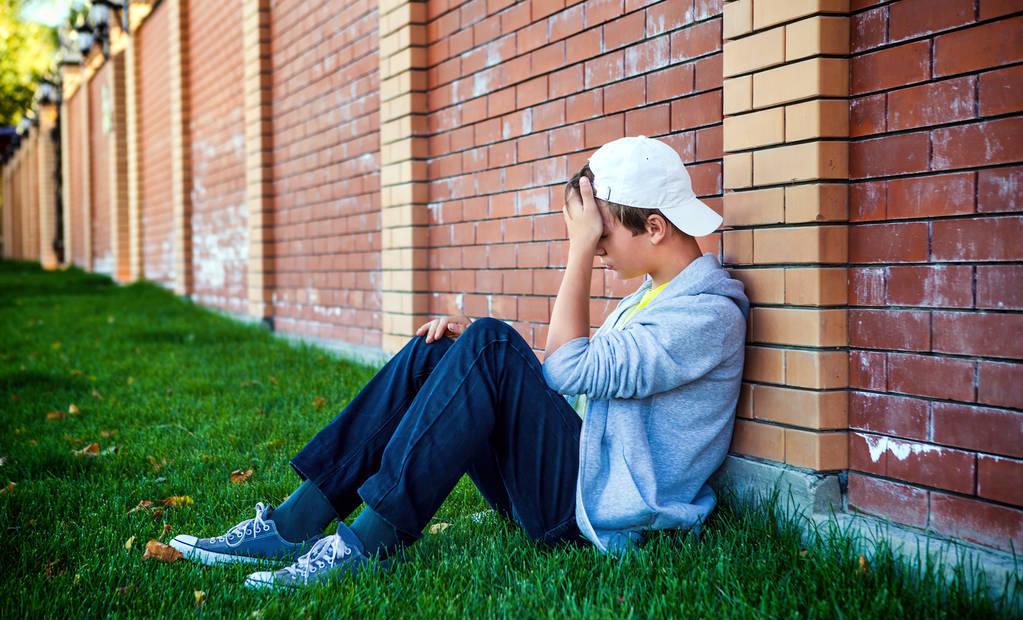Statistics from the World Health Organization:
●People aged 10-19 make up one-sixth of the total population.
●Half of all mental health disorders begin at age 14, but most cases go undetected and untreated.
Globally, depression is one of the leading causes of illness and disability among adolescents.
●Suicide is the third leading cause of death for children aged 15-19 years.
●Studies have shown that the rate of meeting the criteria for depression in adolescents is as high as 11%, which is much higher than in the general population (the prevalence of depression in the general population is about 2%, and the prevalence of all depression is about 6%)

These heart-wrenching statistics, and the succession of family tragedies, should be enough to urge us to confront and reflect, not just blame and ignore.
This is a big misunderstanding that has long existed in our adolescent parenting philosophy, "young people are just small rebels, and when they grow up, they will be fine, this is just a growing pain, or the necessary price for growing up." However, it is because of this parenting concept that many children with depression miss the best treatment opportunities.
Therefore, how to distinguish between "growing pains" and "depression" has become the biggest confusion of current parents, only by clarifying the difference between the two, can parents be able to understand the problem more objectively and give children timely help and intervention.
<h1 class="pgc-h-arrow-right" data-track="12" > common "deviant" problem behavior among adolescents</h1>
In teens, it is common to be depressed or overbeat, but depression and related psychological problems and mental disorders are different. The negative effects of adolescent emotional problems go far beyond mood swings and problem behaviors, but also affect the core traits of a child's personality. The rebellious and unhealthy behaviors and attitudes are only a symptom, in fact, they are trying to cope with some strong painful emotions and inner conflicts, and their life and learning are also in trouble.
<h1 class="pgc-h-arrow-right" data-track="48" > here are some common teen "deviant" problem behaviors:</h1>
● Academic problems: In school, there are attendance problems, arrears in learning tasks, difficulty in completing homework, and even repetition or dropout.
Internet addiction: Teens may use the Internet to escape real-world pressures and problems, looking for identity and emotional appeals, but excessive use of smartphones and the Internet will only make them more isolated and lost.
● Risk-taking behaviors: Adolescents suffering from depression may have dangerous or high-risk behaviors, such as dangerous driving, substance abuse (drug or alcohol abuse), and unprotected sex.
● Violent behavior: Some teenagers may have violent tendencies, bullying, stealing, sabotage and other violations of the law.
Other: Adolescent depression has also been linked to a range of other mental health problems, including eating disorders and self-harm behavior.
<h1 class="pgc-h-arrow-right" data-track="49" > adolescent depression vs formative stage problems</h1>
If parents are not sure whether their child is suffering from depression or just experiencing difficulties in growing up in adolescence, consider how long the above symptoms have lasted, how much the child's personality has changed, and whether the child's life and learning have been greatly affected. Growth hormones and stress may cause adolescents to occasionally feel mood swings and restlessness, but if it is a persistent mood depression, or irritability, problem behaviors that seriously affect learning life and interpersonal relationships, it is necessary to seek help and intervention from professionals.
Parents can understand their children's emotional distress in the first time, identify the signals of depression, and help children recognize their situation and need help in time. Signs and symptoms of depression in adolescents:
◎ Sadness or hopelessness, easy to cry or cry frequently
◎ Easy to provoke, angry or always hostile
◎ Irritability and restlessness
◎ Changes in eating or sleeping habits, overeating or no appetite
◎Insomnia or early awakening
◎ Frequent complaints of physical discomfort or pain
◎Difficulty concentrating
◎Lack of energy, passive and passive
◎ Poor performance in school, do not want to go to school, arrears of homework
◎ Lose interest in an activity you once enjoyed
◎ Communication with family and friends is reduced or interrupted
◎ Sense of worthlessness or uselessness
◎ Self-injurious behavior, such as frequent cuts
◎ Suicidal thoughts
<h1 class="pgc-h-arrow-right" data-track="66" > adolescent depression is easily misunderstood or overlooked</h1>
In adolescents, irritability is more common than sadness, and a depressed teenager may be tantrum, hostile, emotionally volatile, prone to frustration, and irritability.
Depressed teens often complain of physical discomfort, such as insomnia, headaches, or stomach pains. No medical triggers were found after a physical examination, and these vague pains and pains may suggest depression.
Depressed adolescents are highly sensitive to frustration and criticism, are plagued by "feelings of uselessness", and are prone to strong feelings of injury or frustration due to criticism by parents or teachers, arguments or conflicts with friends, and failure of exams.
Therefore, parents must pay attention to adolescent depression, if there is abnormal behavior and performance of children, we must recognize the difference between the two, timely let the child self-debugging, if the adjustment does not improve, should find a professional psychological medical institution for treatment in time.